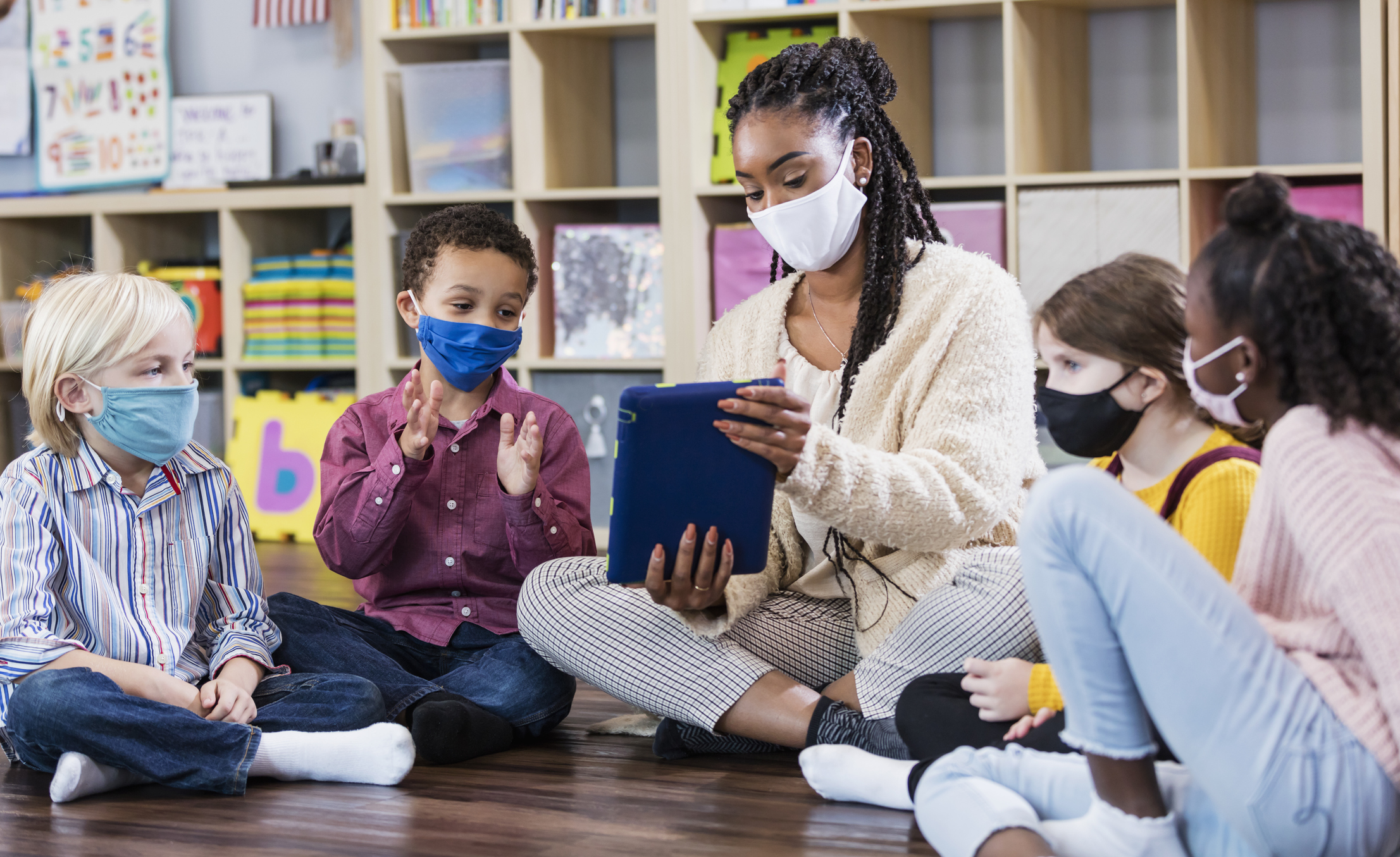
This school year is not going to be like any other — again. No matter what route you chose last year, all of our school-aged children were affected in some way by the pandemic. Now that classes have been in-person for a few weeks, some experts suggest checking in with your child regularly to ascertain how they are adjusting after participating in school virtually.
Amber Kemp-Gerstel, a child psychologist, Juicy Juice ambassador, DIY expert, and host of Disney Family Sundays on Disney+, shares that there are some specific warning signs to look out for as your child is navigating this strange year.
“This transition from the familiarity of home into the novel environment of school can take some getting used to,” says Kemp-Gerstel. “For some children, this transition is quick. For others it may take a few weeks.”
Getting back into a school routine after the required flexibility of last year may trigger a wide range of difficulties in children. According to Kemp-Gerstel, “Small challenges may include difficulty waking up or difficulty getting back into the routine of daily homework.” Other challenges may include tearful goodbyes at drop-off, trouble socializing with new friends, signs of sadness or anxiety or not eating lunch at school – which may require some specific attention from parents and teachers.
“As we continue to find our footing in the pandemic, we are likely to see more instances of children struggling as they reenter the in-person classroom. After a year or more at home, kids are no longer accustomed to the routine of in-person school. Tasks like staying seated all day or raising their hand before being excused to the restroom may be out of practice. Parents and teachers, alike, will need to exhibit some grace during the first weeks of school as these expectations become more routine," she says.
While a child psychologist may be able to figure out the why behind a child’s behavior, parents are the experts in identifying changes in their behavior. The hard part will be sorting out what may really be an issue that needs attention or just common and expected behavior in school-aged children, like being resistant to doing their homework.
“All of these behaviors can occur in typically developing children, and they are not cause of immediate concern. If parents continue to be concerned after four weeks of school and they continue to notice problematic behaviors, it may be time to enlist the consultation of school staff, like a teacher, school counselor, or school psychologist.”
These are the warning signs experts say parent will want to be on the lookout for this year:
- difficulty sleeping or sleeping too much
- being fidgety
- being extra shy or timid
- acting out/abnormal behavior
- anxiety or sadness
- challenges with eating
Keep in mind that some of these will come with a new environment — and that's totally normal — but if they don't gradually settle after four weeks or you feel that there is more to the situation, follow the steps below to help your child work through any challenges.
Be there for your kids
Heading back to school after a year of virtual or hybrid schooling can be a little intimidating for kids. You can inject some encouragement, confidence and joy into their school day by sharing notes in their lunchbox to let them know you are thinking of them. You may also be available in the afternoons and evenings with a snack and ready to listen to what's going on in their lives or what happened during the day. The key is to be present.
Leverage your resources
With so many children returning to school after a year or more of virtual education, you may notice some emotional difficulties with your child including some anxiety, social troubles, and attention problems — but that may not be something your child wants to talk to you about. Your child’s school likely has a counselor or psychologist, so don’t hesitate to reach out with any questions or concerns.
But don’t forget to get yourself some help, too. Lean on the other parents in your class for support. Consider creating a parent group chat. As parents, we may feel out of the loop when it comes to the day-to-day activities and events that happens at school, so help each other stay in the know and connected.
Play goes a long way
Now that kids are heading back to school, we’re spending less time together, so make your family time count by setting aside a special time where you really connect with each other and just play! Play is the natural language of young children. By playing with your kids without the distraction of your phone or other device, you’ll have meaningful conversations, learn what’s on their mind and maybe uncover any difficulties they may be experiencing. This can be just 10 minutes after school before homework. Remember, it doesn’t have to be a lot of time to make a big difference.




